- Home
- Warhammer 40K
Vaults of Terra- The Hollow Mountain - Chris Wraight Page 3
Vaults of Terra- The Hollow Mountain - Chris Wraight Read online
Page 3
Still, he should have been able to shake the memory off. He had seen many bad things and absorbed them all. An inquisitor was expected to be able to cope, to process such poison and transmute it into something useful. A lifetime of labour, of constant training, of psycho-conditioning and ritual observance, should have given him the tools to rise above anything.
He reached his private rooms. His fingers danced twice, and the lumens reduced to a cold blue glow. From somewhere, a vox-emitter began to play music. As so often, it was Bacque. Crowl’s old master, Levi Palv, had been fond of saying that Bacque was the only truly incontrovertible proof that humanity was worthy of continued survival, and in the years since, his pupil had come to agree with him on that, if on little else.
So he sat, heavily, in a real-leather armchair and reached for the ever-present lead crystal decanter.
It might have been the xenos. Proximity to such debased specimens was proscribed for a reason. Or perhaps it was the things Navradaran had shown him before that fateful meeting. Down there, in the hallowed halls leading to the Eternity Gate itself, Crowl had felt the colossal tug of the one immortal presence that guided them all. He had not slept since, not truly. Erunion’s concoctions could knock him out for a while, but only far enough to provoke dreams of black gums under white lips, laughing in the shadows. What was he seeing there? The xenos wretch? Or something closer to home, buried hard and fast and deep under that continent-sized Palace?
Spinoza had already noticed. He had seen similar signs with her, though not as acute. In addition, she was younger, stronger, more apt to bounce back. He found himself envying her. The iron certainties were still intact in Spinoza, so much so that it was hard to know how best to tutor her further. Inquisitors of her ilk generally had two courses ahead of them – to double-down on their puritanism and become fanatics for the Throne, or have it steadily worn away until they became like he was.
From the outset, for ignoble reasons, he had sought to turn Spinoza away from her inclinations and show her the folly of cleaving too close to the literal core of Ministorum doctrine. Now he had no idea where to lead her, or even if he were capable of leading her anywhere at all. It was almost certainly too late now. Preoccupied with survival, with seeing this thing through to the end, there would be little space left for instructing his interrogator as she ought to be instructed.
Still, she was no one’s fool. As new to Terra’s labyrinthine politics as she was, she understood that maintaining an investigation into this scheme was taking them into treacherous territory. In principle, an inquisitor was beholden to no one but the Emperor Himself, able to take his or her enquiries where the evidence led without fear of hindrance or obstruction. In practice, some members of the ordo were more powerful than others, and even the very greatest would hesitate before following a thread into the Senatorum Imperialis itself. It was not fear, though, that made her hesitate. It was that she still had faith in the institutions, resisting the notion that such exalted servants could possibly behave less than perfectly. That was what stayed her hand – the belief, cultivated and maintained through her diligent recitals of the catechisms, that the High Lords could do no wrong.
Crowl smiled briefly in the dark, a flicker across his scarred face. Perhaps, once, he too would have thought the same.
‘Summarise,’ he said.
A translucent hololith spiralled into life ahead of him, hanging in the gloom in a gauze of flickering green. Runes scrolled across it, followed by raster-barred images.
‘Speaker of the Chartist Captains, Kania Teledh Dhanda,’ came a disembodied voice – a vox-recording linked to the cogitator’s spool-record. ‘Female. Estimated age: ninety-seven standard years. Terra-born. Held Speakership for forty-one years. Held seat on the High Council for thirty-one years. Known Inquisitorial investigations: none. Known suspect tendencies: none. Political affiliations, list follows.’
‘Halt,’ Crowl ordered, thinking. He studied the gently rotating three-dimensional image of Dhanda’s head. She looked incredibly young, even for one with access to the very best rejuve treatments. Her hair was pulled back into a tight bun, and she carried two small tattoos on her right cheek – charter-marks, no doubt, from her ascent through the hierarchy. Her expression on the hololith was blank, with a tight mouth held firm and flat. She looked unaugmented, unlike the grotesquely altered Fabricator-General. Normal, almost.
And yet no High Lord was normal. They held truly massive amounts of power in their hands, accumulated collectively over thousands of years. Each one was an emperor in their own right, a potentate capable of drawing on near-untrammelled volumes of patronage and resource. Some were flashier than others: the Grand Master of Assassins, say, or his own ultimate mistress, the Inquisitorial Representative – they tended to attract the most fear. Dhanda, though, was as quietly influential as any of them. It had been estimated that nine out of ten ships in the Imperium fell under her purview. If the merchant fleets stopped plying their trade across the yawning void then the Imperium would swiftly fall apart. Whether it was hauling ores from mining asteroids to forge worlds, or munitions from those forges to the Militarum regiments, or foodstuffs from agri worlds to the teeming hive spires, the merchant charters were the mortar that held the tottering structures of the Imperium together. A word from Dhanda, and billions could prosper or decline, live in ease or starve.
Crowl had often wondered what such power did to a person. The High Lords were not genetically enhanced constructs like Navradaran, as limited by design as they were powerful – they were men and women like him, capable of doubt, capable of weakness. Even, as seemed possible now, capable of treachery.
He took a long swig, emptying his glass, and the hololith flickered out. It had been a long time since sleep had been restful. He had doubts that this night would be any different.
There was so much he didn’t understand, and so little time to discover the necessary truths.
‘Aneela,’ he said out loud into the darkness, activating his comm-line.
‘Lord,’ came the crackling reply, crisp and ready. Aneela was so perfectly reliable.
‘I require a meeting with a colleague,’ Crowl said. ‘Slek Nor Jarrod. His details are in Huk’s records. Speak to his people. Impress upon them the need for haste.’
‘By your will.’
‘Secure channels.’
‘Of course.’
Then the link cut out, the hololith span away, and Crowl was alone again, in the dark, thinking hard.
Chapter Three
At dawn, following her regular devotions, Spinoza resumed her research. Her cell had been piled with books for some days, and more were scheduled to arrive soon. They formed mouldering stacks on the metal floor, all dusty, flaking spines and – in the case of the most proscribed – coils of rusting chains. The light from the window was as grey and weak as ever, and so candles burned, casting a wavering yellow blush over the vellum.
Spinoza had always been a diligent student, and knew more of the technicalities of the Lex Imperialis than most of her peers, but Terra, needless to say, had its peculiarities. The Lex, already complex beyond mortal calculation, was further complicated here by ancient treaties and pacts, some pre-dating the Imperium itself, all relating to the institutions that only existed here. The task of a judge was hard enough in any context; on the Throneworld, where billions of illiterates lived desperate lives crammed up against one another in the dark, occupying chambers and roles that had been old even before the myth-age of the Great Heresy, it was nigh-impossible.
Lermentov, the heretic, had told her exactly how it was.
The people here have precisely three fears – the monsters, each other, and you.
She snapped closed the tome in front of her. She admonished herself. Lermentov was dead now, and his execution had been just. She should not be recalling anything he had told her, not even in scraps of unbidden memory.
Spinoza pushed herself back from her desk and rubbed her eyes. She got up and paced around her cell. Argent was under wraps, a dormant presence in the shadows, something to be pushed away too, lest it prove another distraction.
She needed to begin her investigations soon, following Crowl’s direction, and she was not making good progress with her preparations. The cause, she knew, lay within. Too many doubts refused to be quashed through the usual methods. If she were to return to full operational effectiveness, there was little point hammering away at the same worn-out seams – she needed a change.
She pulled her cloak across her shoulders and activated the door release. The candles fluttered as she swept out into the corridor beyond. After that, she trod a practised route through Courvain’s convoluted inner pathways. Menials, more of them than usual it seemed, bowed and scurried around her. Many were carrying bundles of sensitive parchments, and some were escorted by storm troopers from the house detachment. Revus was working hard, further ramping up security in a citadel where it had already been ratchet-tight. The work created an atmosphere of more-than-usual tension, one that made the thrall-classes nervy.
She descended rapidly, finding her way, as she had done before, to Yulia Huk’s little realm. The place was just as she remembered it from the last time – a circular well, lined with parchment and synth-leather book spines, its symmetry broken by the scampering servitor-creatures in their retrieval baskets. More of them were working this time, hauling on the chains with their metal-clamped fingertips and throwing books jerkily into their shoulder-strapped hoppers. She wondered where Huk kept them when they were not on duty.
The archivist herself was facing away from her as she entered, observing the clattering progress of her creatures, and only turned as Spinoza came up close. For a moment, her crabbed face looked panicked, then it relaxed into a lopsided grin.
‘Ah, you,’ Huk said, making the heavy cables running from her hunched back wobble as she turned. ‘The schola girl. What are you down here for?’
Spinoza was not, by any rational measure, a girl. Before coming to Courvain she might have made something of the insult, but Huk was just one of the eccentrics Crowl seemed happy to cultivate, and who had become such a wretch in his service that it seemed pointless to add to her misery.
‘I require information on the Arbites sector command,’ she said. ‘I thought that–’
‘–I might be able to help?’ Huk snorted a dry laugh. ‘No. Not at all. See this? This is what he makes me do for him now.’ She gestured with ironwork fingers to her vaulting gangs of servitors. ‘He wants every scrap of every little thing. Xenos? Yes! The Senatorum? Yes! Old Rassilo? We don’t have much on her, but yes, yes, yes.’ She winked at Spinoza with her one good eye. ‘I don’t like to refuse him. But you? No capacity. Come back later.’
Spinoza stared at her. The keeper of records seemed more shambolic than ever, as if the augmetics that held her together were slowly coming apart. The pulses running down her extensive cabling were travelling faster than they had done before, a flickering dance of rapid synapse-conveyance.
‘It will have to wait for some time, then,’ Spinoza said curtly. ‘I will be on mission again before this day closes. My thanks, though, for your help.’
Huk sidled up to her. ‘Don’t be like that.’ Her voice could switch to a wheedle instantaneously. ‘We’re all working hard. What did you find out there? You can tell me.’
‘You know I can’t.’
‘I’ll put it together, sooner or later.’ She grinned. ‘I can work it out from what you file, or don’t, given time.’ The smile flickered out again. ‘But you didn’t come down here for papers. You have plenty of those.’
That was true.
‘You wanted to talk to me, before,’ Spinoza said.
‘About Crowl? Of course. But you know all about him now, don’t you?’
‘Tell me about yourself, then.’
Huk recoiled. She smiled again, though weakly. ‘Not sure why you’d want to know. And we’re busy.’
‘I do not believe you commenced your service in these archives.’
‘No, no. Of course not.’ Huk’s eyepiece whirred, and she pulled at her robes absently. ‘Savant. He didn’t have a retinue. You hear that all the time! But he didn’t, except he needed a savant, and I was training then, and I liked him, and he liked me. I was good. Very good.’ She winced. ‘But, it is hard. Your mind. It changes. Some do not cope. They do not remember. I began to… forget. A savant never forgets. I made a mistake. A bad one.’ Huk began to look anguished again. ‘Then they were coming for me. It would have been a poor death. I couldn’t have argued with it. It would have been easier for him to stand aside, and let them take me.’ She shook her head. ‘He didn’t. He buried me down here instead. I can still be of service, see?’ The grin returned. ‘I paid him back, I think, over the years. I got good at this. My mind – never the same. But I’m still good. Very good.’
‘It is a dangerous thing,’ said Spinoza, ‘to interfere with just sanction.’
‘And who says it was just?’ Huk chuckled. ‘Maybe it was. But maybe it wasn’t. You’ll learn the difference soon enough.’
‘I already know it.’
‘Of course you do.’ Huk limped around her, her tattered skirts dragging on the stone floor. ‘You think he’s dangerous. You think he’s a whisper away from going rogue. Don’t deny it!’
Spinoza smiled to herself. ‘We have our disagreements,’ she said. ‘I admire the way he allows me to express them.’
‘Then don’t be a fool.’ Huk sidled up closer, and unpleasant aromas wafted up from under the cloak. ‘There’s no more loyal servant to the Throne.’
‘Though he conceals it well.’
‘You know his… condition. It makes him care less about what he says.’
‘Words matter.’
‘Do they? Not really. Not most of the time.’
They looked at one another for a little while. Spinoza saw the ruin on Huk’s features, the slide into half-maintained dereliction. Everything here was falling into ruin, and no one ever queried it. She wondered if Huk saw the same in her.
She pulled away. ‘I will return, when I can,’ she said. ‘Then I will require my information.’
Huk shuffled off, looking uncertain, as if she couldn’t remember what she’d just said, or why she had said it. ‘Of course,’ she mumbled.
‘But this place is disordered,’ Spinoza added, turning on her heel. ‘You were a savant. You should fix it.’
Huk watched her go. ‘Some things can’t be fixed,’ she mumbled.
‘Everything can be remade,’ Spinoza said, reaching the doors. ‘That is the lesson He teaches us every day.’
The locks cycled.
‘Not here,’ said Huk, as Spinoza crossed the threshold. She turned back to her servitors and her chrono-racks. ‘This is Terra.’
It was the first time Crowl had left Courvain since sustaining his injuries. He took a groundcar, with Aneela in the cab, feeling somehow that staying close to the earth might help him adjust, and in any case the distance to travel was small. They pulled out of the vehicle depot in a cough of smoke, then growled up to the main transitway. Crowl sat back, letting the lights from the city filter through the armour-grille viewport, and watched.
For most of human history, orientation on this world had been virtually two-dimensional. There was the ground and the sky, and the entirety of the living occupied a narrow strip between them. By the 41st millennium, that distinction had all but disappeared, to the extent that it was very uncertain where the ‘ground’ on Terra actually was. The foundations of the great hive spires delved far below the nominal surface crust. Hidden catacombs and pits plunged down further still, honeycombing the world’s upper mantle in a deepening procession of worm-eaten galleries. In the filmy air above it all, the jutting hive spires merged and branch
ed in dizzying, almost organic thickets, joined and trussed by spans and viaducts and gothic arches, such that no structure ever really stood independently of any other, and all was lost in a grime-stained haze of fumes and vented condensation.
Transitways perched high up and jutted down low, sweeping round the boles of the spires before toppling back into the lamplit depths, then branching, then re-joining, then coalescing into the vast, echoing transportation nexuses before more routes sprouted and divided away again. Old ordinances governed their use, rigorously categorising the cracked rockcrete avenues by purpose and status. The majority, the Via Exclusiva, were reserved for security personnel, leaving the greater bulk of the population to travel on the wider but more heavily congested Via Ordinaria, jostling and clawing past one another to get to wherever they needed to be. A select subset, the Via Prohibida, was kept clear for the very highest echelons of the Imperial hierarchy – the governing classes, senior enforcers of the Adeptus Arbites, agents of the Inquisition. These narrow conduits shot precariously above the rest, tracing efficient routes between the major administrative centres, though it was rarely possible to complete an entire journey without having to duck down onto less exalted transitways.
For the time being, though, the groundcar travelled at one remove from the great press of humanity, a little higher up, a little further away. Crowl watched as the dim walls of the great spires passed by, flickering through the narrow slats of the grille, a steady march of grey-black terraces and buttresses.

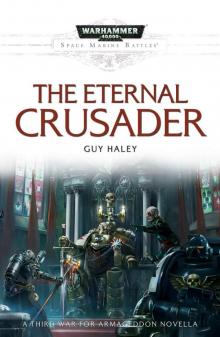 The Eternal Crusader - Guy Haley
The Eternal Crusader - Guy Haley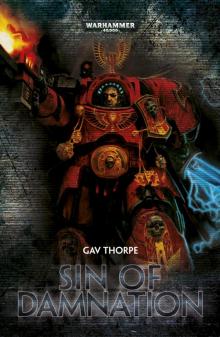 Sin of Damnation - Gav Thorpe
Sin of Damnation - Gav Thorpe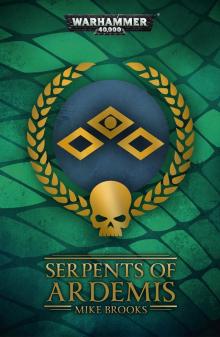 Serpents of Ardemis - Mike Brooks
Serpents of Ardemis - Mike Brooks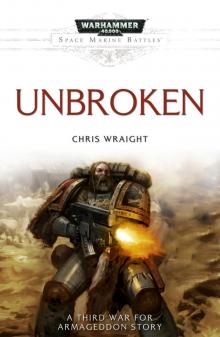 Unbroken - Chris Wraight
Unbroken - Chris Wraight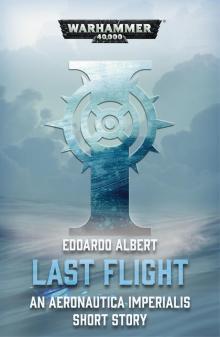 Last Flight - Edoardo Albert
Last Flight - Edoardo Albert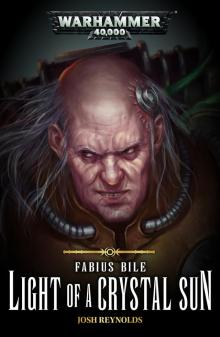 Light of a Crystal Sun - Josh Reynolds
Light of a Crystal Sun - Josh Reynolds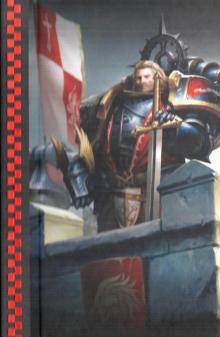 Lion El'Jonson- Lord of the First - David Guymer
Lion El'Jonson- Lord of the First - David Guymer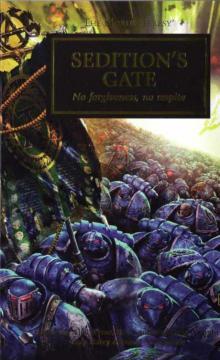 Sedition's Gate - Nick Kyme & Chris Wraight
Sedition's Gate - Nick Kyme & Chris Wraight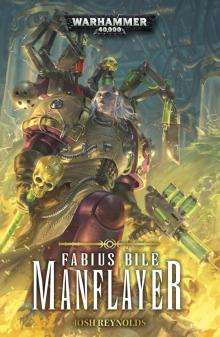 Manflayer - Josh Reynolds
Manflayer - Josh Reynolds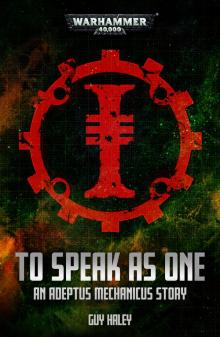 To Speak as One - Guy Haley
To Speak as One - Guy Haley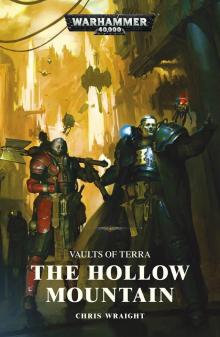 Vaults of Terra- The Hollow Mountain - Chris Wraight
Vaults of Terra- The Hollow Mountain - Chris Wraight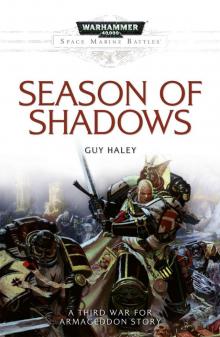 Season of Shadows - Guy Haley
Season of Shadows - Guy Haley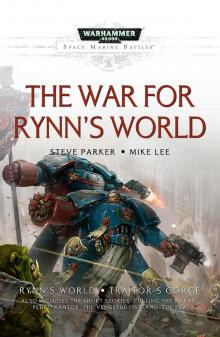 The War for Rynn's World - Steve Parker & Mike Lee
The War for Rynn's World - Steve Parker & Mike Lee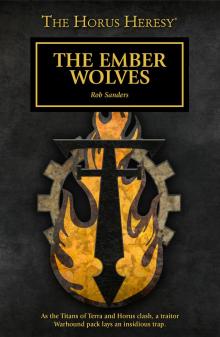 The Ember Wolves - Rob Sanders
The Ember Wolves - Rob Sanders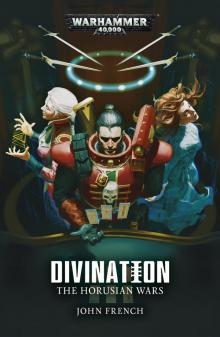 Divination - John French
Divination - John French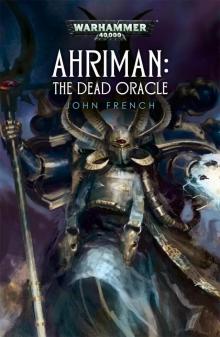 The Dead Oracle - John French
The Dead Oracle - John French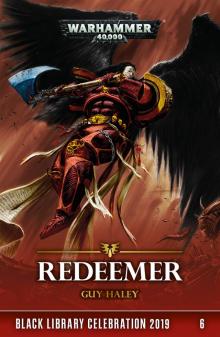 Redeemer - Guy Haley
Redeemer - Guy Haley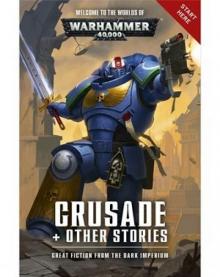 Crusade & Other Stories - Dan Abnett Et Al.
Crusade & Other Stories - Dan Abnett Et Al.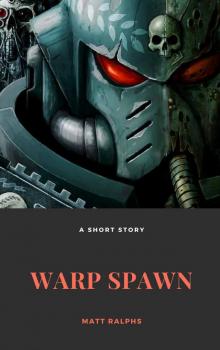 Warp Spawn - Matt Ralphs
Warp Spawn - Matt Ralphs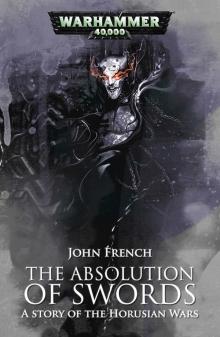 The Absolution of Swords - John French
The Absolution of Swords - John French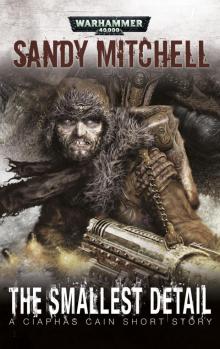 The Smallest Detail - Sandy Mitchell
The Smallest Detail - Sandy Mitchell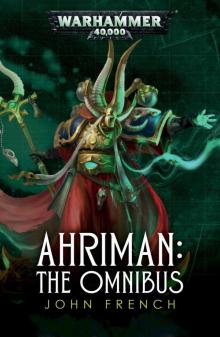 The Omnibus - John French
The Omnibus - John French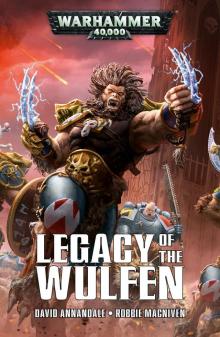 Legacy of the Wulfen - David Annandale & Robbie MacNiven
Legacy of the Wulfen - David Annandale & Robbie MacNiven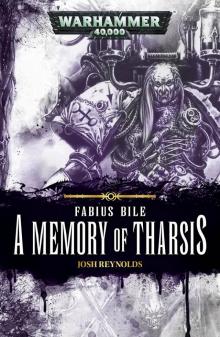 A Memory of Tharsis - Josh Reynolds
A Memory of Tharsis - Josh Reynolds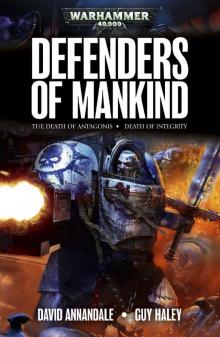 Defenders of Mankind - David Annandale & Guy Haley
Defenders of Mankind - David Annandale & Guy Haley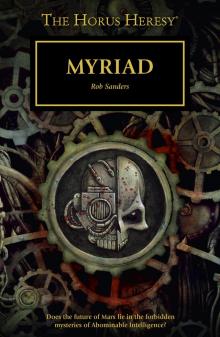 Myriad - Rob Sanders
Myriad - Rob Sanders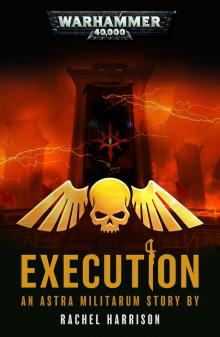 Execution - Rachel Harrison
Execution - Rachel Harrison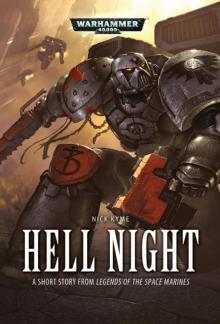 Hell Night - Nick Kyme
Hell Night - Nick Kyme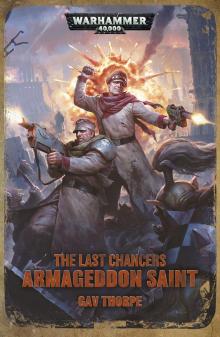 Armageddon Saint - Gav Thorpe
Armageddon Saint - Gav Thorpe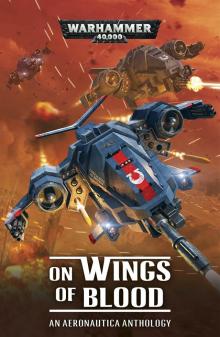 On Wings of Blood
On Wings of Blood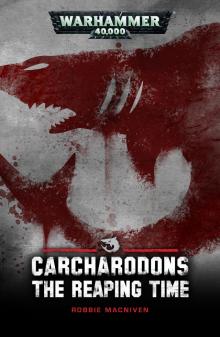 The Reaping Time - Robbie MacNiven
The Reaping Time - Robbie MacNiven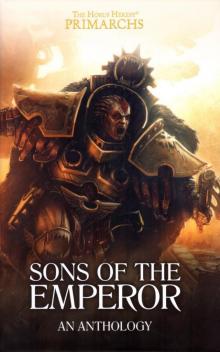 Sons of the Emperor
Sons of the Emperor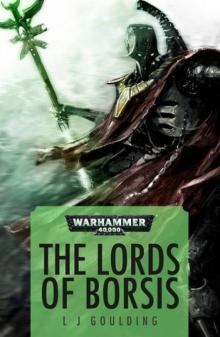 The Lords of Borsis - L J Goulding
The Lords of Borsis - L J Goulding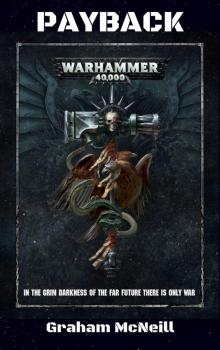 Payback - Graham McNeill
Payback - Graham McNeill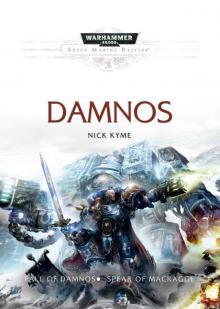 Damnos - Nick Kyme
Damnos - Nick Kyme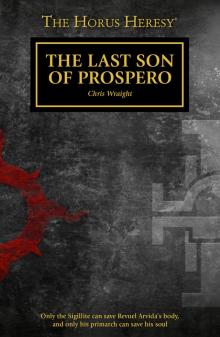 The Last Son of Prospero - Chris Wraight
The Last Son of Prospero - Chris Wraight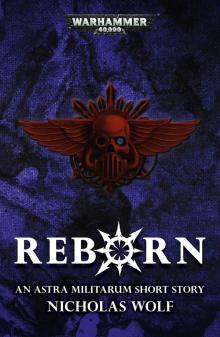 Reborn - Nicholas Wolf
Reborn - Nicholas Wolf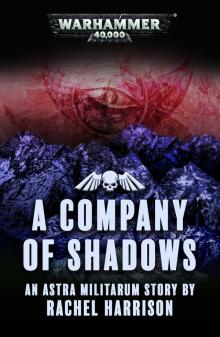 A Company of Shadows - Rachel Harrison
A Company of Shadows - Rachel Harrison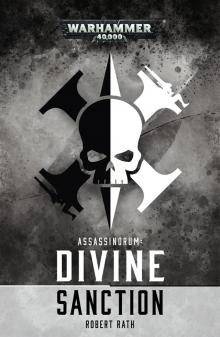 Assassinorum- Divine Sanction - Robert Rath
Assassinorum- Divine Sanction - Robert Rath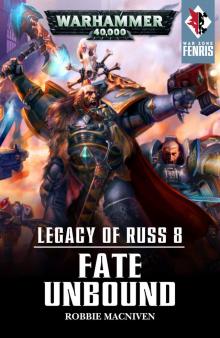 Fate Unbound - Robbie MacNiven
Fate Unbound - Robbie MacNiven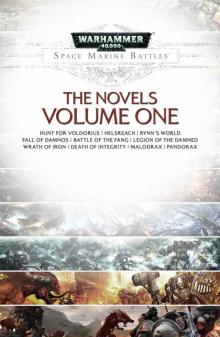 Space Marine Battles - the Novels Volume 1
Space Marine Battles - the Novels Volume 1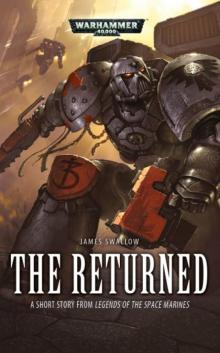 The Returned - James Swallow
The Returned - James Swallow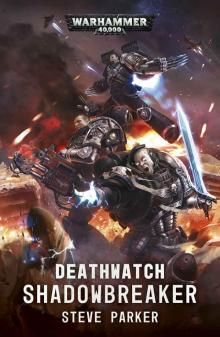 Shadowbreaker - Steve Parker
Shadowbreaker - Steve Parker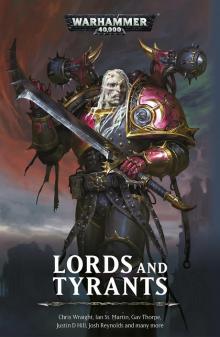 Lords and Tyrants
Lords and Tyrants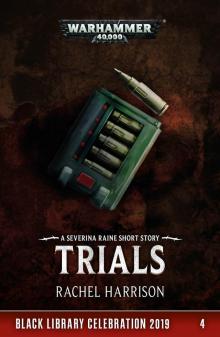 Trials - Rachel Harrison
Trials - Rachel Harrison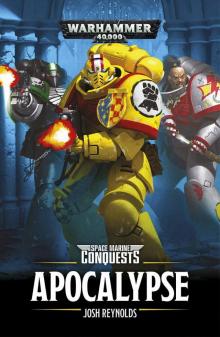 Apocalypse - Josh Reynolds
Apocalypse - Josh Reynolds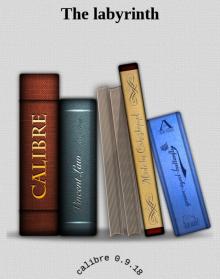 The labyrinth - Richard Ford
The labyrinth - Richard Ford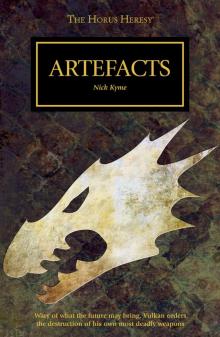 Artefacts - Nick Kyme
Artefacts - Nick Kyme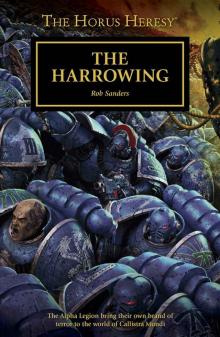 The Harrowing - Rob Sanders
The Harrowing - Rob Sanders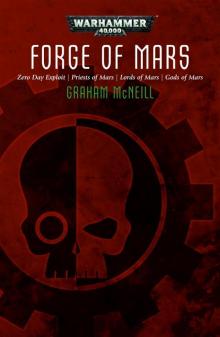 Forge of Mars - Graham McNeill
Forge of Mars - Graham McNeill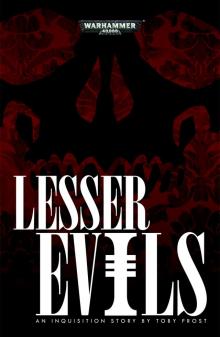 Lesser Evils - Toby Frost
Lesser Evils - Toby Frost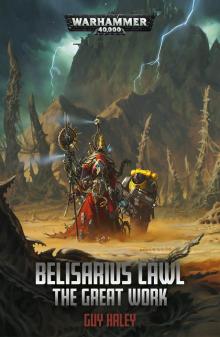 Belisarius Cawl- the Great Work - Guy Haley
Belisarius Cawl- the Great Work - Guy Haley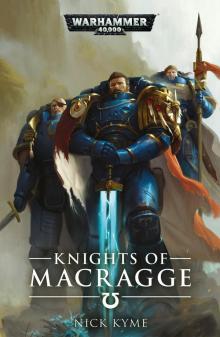 Knights of Macragge - Nick Kyme
Knights of Macragge - Nick Kyme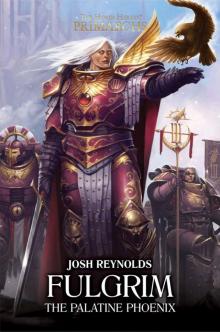 Fulgrim- The Palatine Phoenix - Josh Reynolds
Fulgrim- The Palatine Phoenix - Josh Reynolds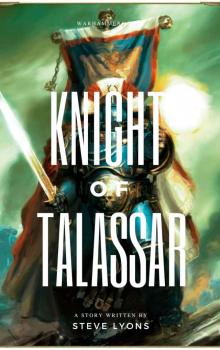 Knight of Talassar - Steve Lyons
Knight of Talassar - Steve Lyons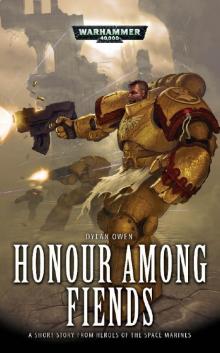 Honour Among Fiends - Dylan Owen
Honour Among Fiends - Dylan Owen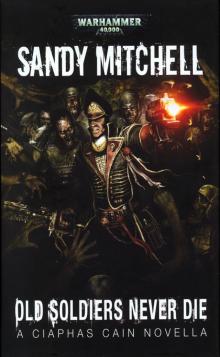 Old Soldiers Never Die - Sandy Mitchell
Old Soldiers Never Die - Sandy Mitchell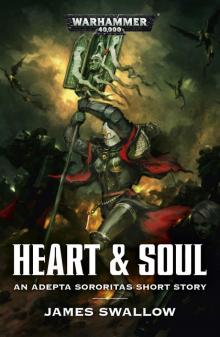 Heart & Soul - James Swallow
Heart & Soul - James Swallow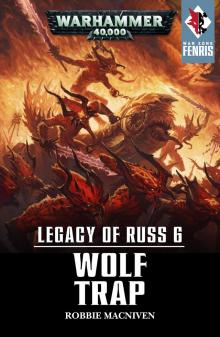 Wolf Trap - Robbie MacNiven
Wolf Trap - Robbie MacNiven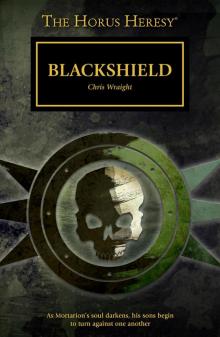 Blackshield - Chris Wraight
Blackshield - Chris Wraight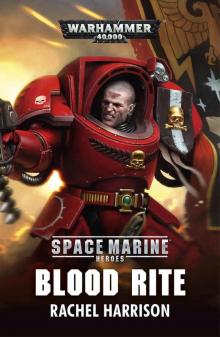 Blood Rite - Rachel Harrison
Blood Rite - Rachel Harrison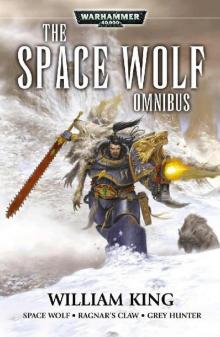 The Space Wolf Omnibus - William King
The Space Wolf Omnibus - William King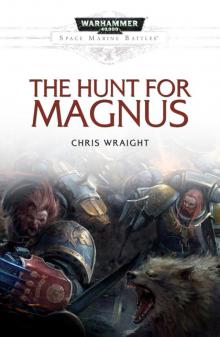 The Hunt for Magnus - Chris Wraight
The Hunt for Magnus - Chris Wraight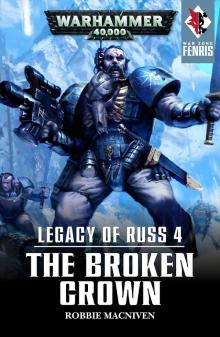 The Broken Crown - Robbie MacNiven
The Broken Crown - Robbie MacNiven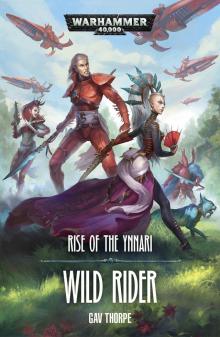 Wild Rider - Gav Thorpe
Wild Rider - Gav Thorpe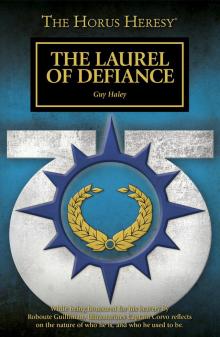 The Laurel of Defiance - Guy Haley
The Laurel of Defiance - Guy Haley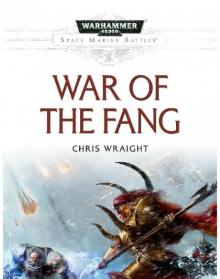 War of the Fang - Chris Wraight
War of the Fang - Chris Wraight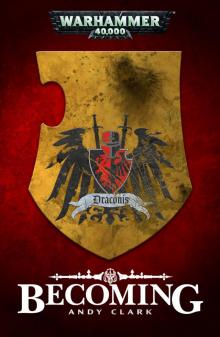 Becoming - Andy Clark
Becoming - Andy Clark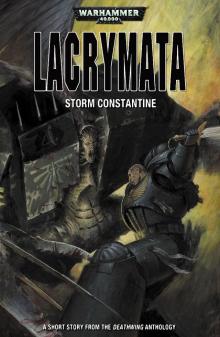 Lacrymata - Storm Constantine
Lacrymata - Storm Constantine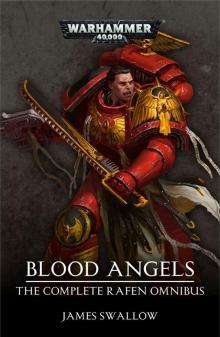 Blood Angels - The Complete Rafen Omnibus - James Swallow
Blood Angels - The Complete Rafen Omnibus - James Swallow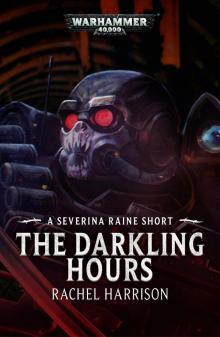 The Darkling Hours - Rachel Harrison
The Darkling Hours - Rachel Harrison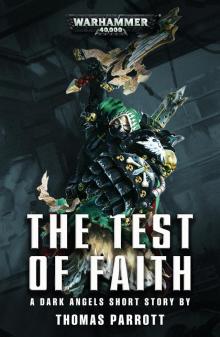 The Test of Faith - Thomas Parrott
The Test of Faith - Thomas Parrott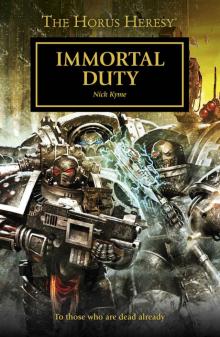 Immortal Duty - Nick Kyme
Immortal Duty - Nick Kyme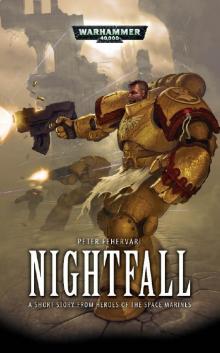 Nightfall - Peter Fehervari
Nightfall - Peter Fehervari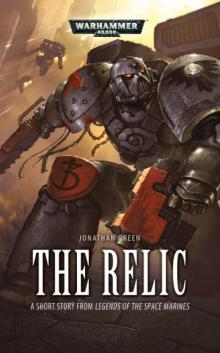 The Relic - Jonathan Green
The Relic - Jonathan Green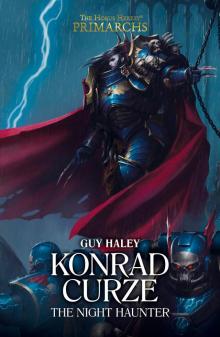 Konrad Curze the Night Haunter - Guy Haley
Konrad Curze the Night Haunter - Guy Haley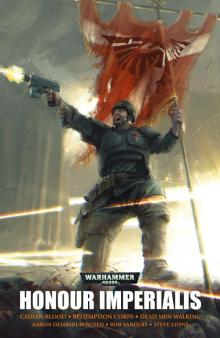 Honour Imperialis - Aaron Dembski-Bowden
Honour Imperialis - Aaron Dembski-Bowden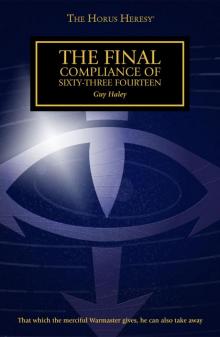 The Final Compliance of Sixty-Three Fourteen - Guy Haley
The Final Compliance of Sixty-Three Fourteen - Guy Haley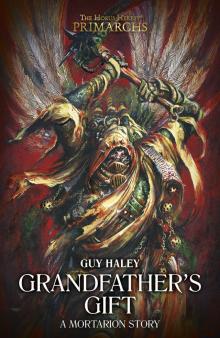 Grandfather’s Gift - Guy Haley
Grandfather’s Gift - Guy Haley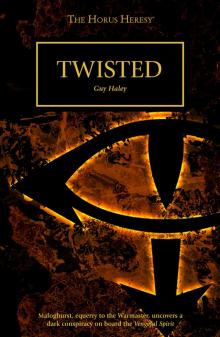 Twisted - Guy Haley
Twisted - Guy Haley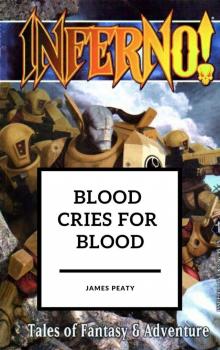 Blood Cries for Blood - James Peaty
Blood Cries for Blood - James Peaty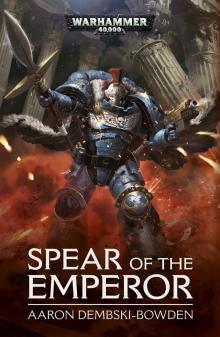 Spear of the Emperor - Aaron Dembski-Bowden
Spear of the Emperor - Aaron Dembski-Bowden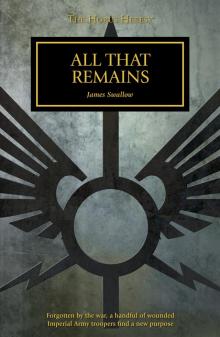 All That Remains - James Swallow
All That Remains - James Swallow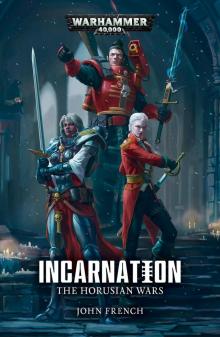 Incarnation - John French
Incarnation - John French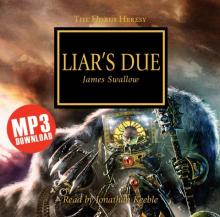 Liar's Due - Ben Swallow
Liar's Due - Ben Swallow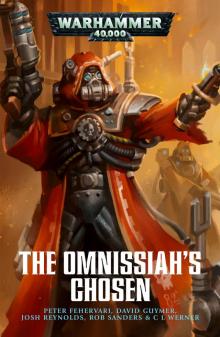 The Omnissiah's Chosen - Peter Fehervari
The Omnissiah's Chosen - Peter Fehervari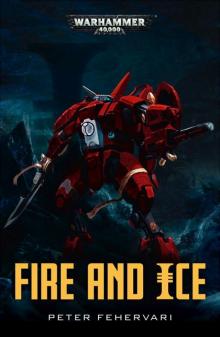 Fire and Ice - Peter Fehervari
Fire and Ice - Peter Fehervari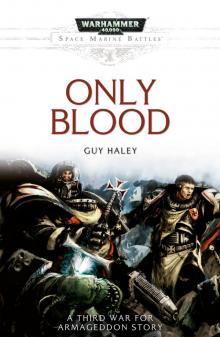 Only Blood - Guy Haley
Only Blood - Guy Haley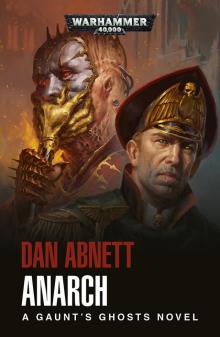 Anarch - Dan Abnett
Anarch - Dan Abnett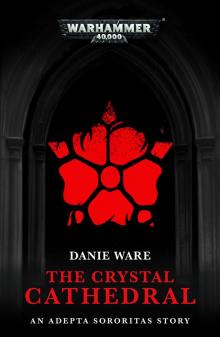 The Crystal Cathedral - Danie Ware
The Crystal Cathedral - Danie Ware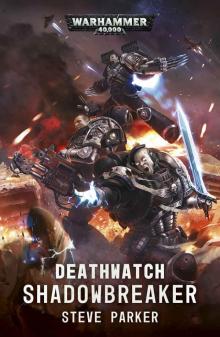 Shadowbreaker
Shadowbreaker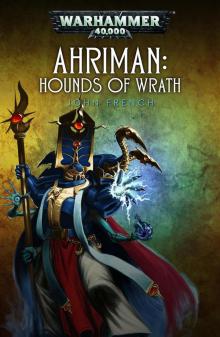 Hounds of Wrath - John French
Hounds of Wrath - John French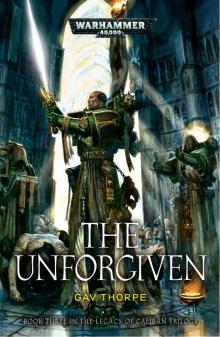 The Unforgiven - Gav Thorpe
The Unforgiven - Gav Thorpe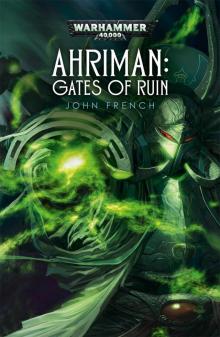 Gates of Ruin - John French
Gates of Ruin - John French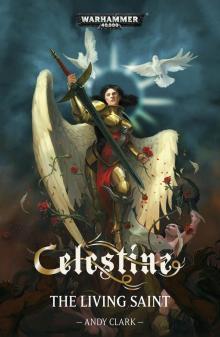 Celestine - Andy Clark
Celestine - Andy Clark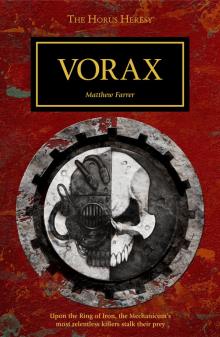 Vorax - Matthew Farrer
Vorax - Matthew Farrer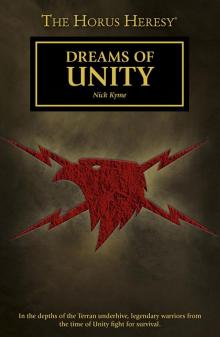 Dreams of Unity - Nick Kyme
Dreams of Unity - Nick Kyme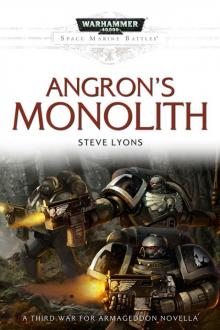 Angron's Monolith - Steve Lyons
Angron's Monolith - Steve Lyons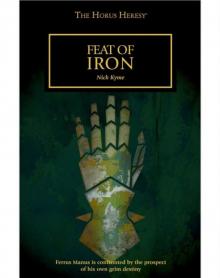 Feat of Iron - Nick Kyme
Feat of Iron - Nick Kyme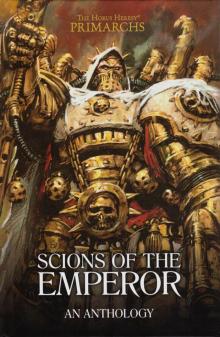 Scions of the Emperor
Scions of the Emperor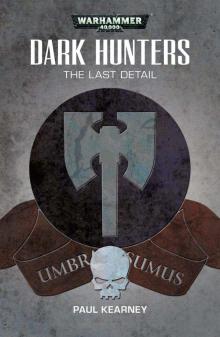 The Last Detail - Paul Kearney
The Last Detail - Paul Kearney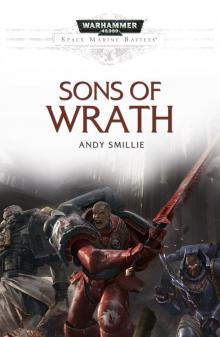 Sons of Wrath - Andy Smillie
Sons of Wrath - Andy Smillie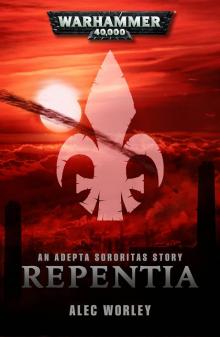 Repentia - Alec Worley
Repentia - Alec Worley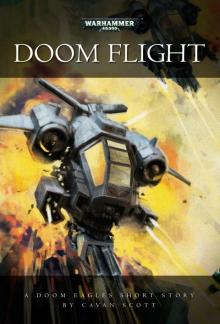 Doom Flight - Cavan Scott
Doom Flight - Cavan Scott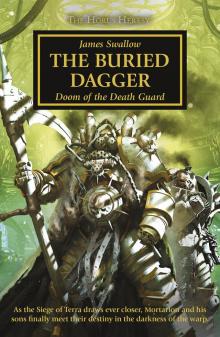 The Buried Dagger - James Swallow
The Buried Dagger - James Swallow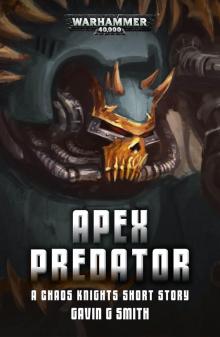 Apex Predator - Gavin G Smith
Apex Predator - Gavin G Smith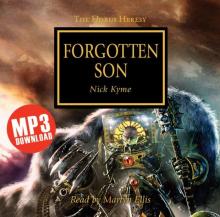 Forgotten Sons - Nick Kyme
Forgotten Sons - Nick Kyme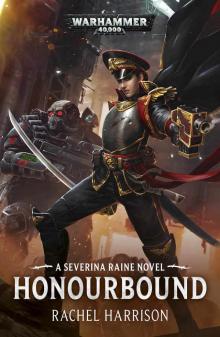 Honourbound - Rachel Harrison
Honourbound - Rachel Harrison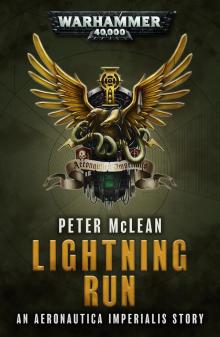 Lightning Run - Peter McLean
Lightning Run - Peter McLean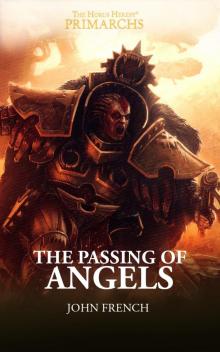 The Passing of Angels - John French
The Passing of Angels - John French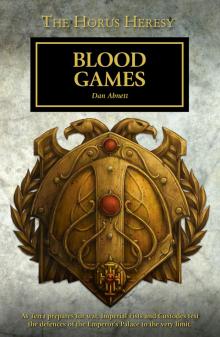 Blood Games - Dan Abnett
Blood Games - Dan Abnett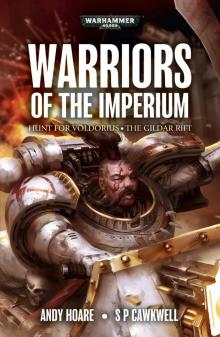 Warriors of the Imperium - Andy Hoare & S P Cawkwell
Warriors of the Imperium - Andy Hoare & S P Cawkwell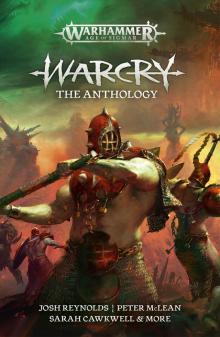 Warcry
Warcry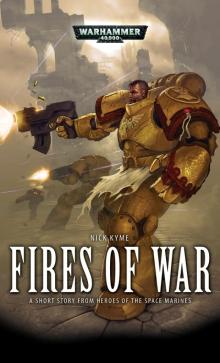 Fires of War - Nick Kyme
Fires of War - Nick Kyme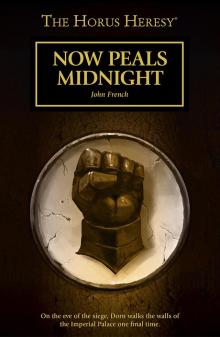 Now Peals Midnight - John French
Now Peals Midnight - John French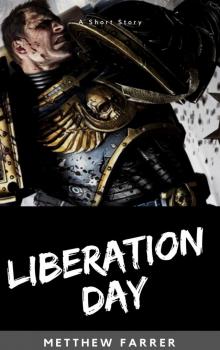 Liberation Day - Matthew Farrer
Liberation Day - Matthew Farrer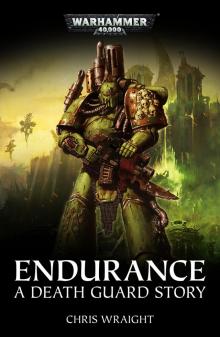 Endurance - Chris Wraight
Endurance - Chris Wraight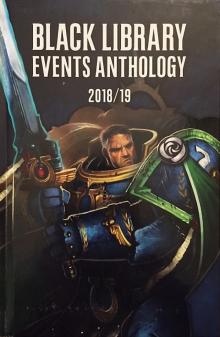 Black Library Events Anthology 2018-19
Black Library Events Anthology 2018-19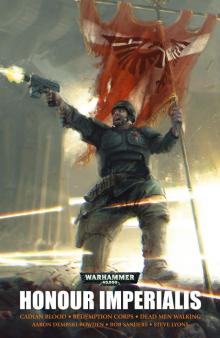 Honour Imperialis - Braden Campbell & Aaron Dembski-Bowden & Chris Dows & Steve Lyons & Rob Sanders
Honour Imperialis - Braden Campbell & Aaron Dembski-Bowden & Chris Dows & Steve Lyons & Rob Sanders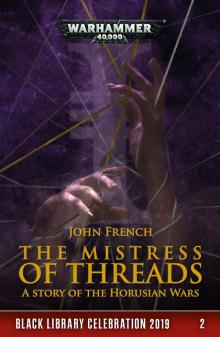 The Mistress of Threads - John French
The Mistress of Threads - John French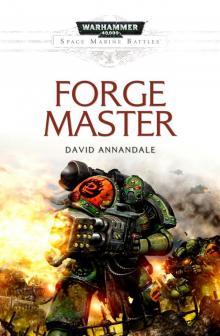 Forge Master - David Annandale
Forge Master - David Annandale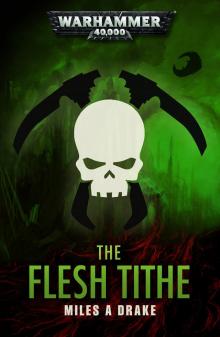 The Flesh Tithe - Miles A Drake
The Flesh Tithe - Miles A Drake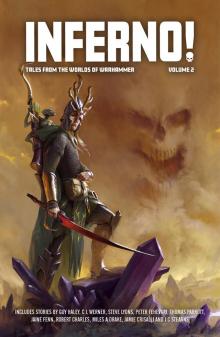 Inferno Volume 2 - Guy Haley
Inferno Volume 2 - Guy Haley Mercy of the Dragon - Nick Kyme
Mercy of the Dragon - Nick Kyme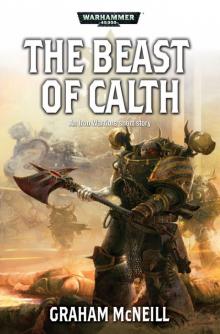 The Beast of Calth - Graham McNeill
The Beast of Calth - Graham McNeill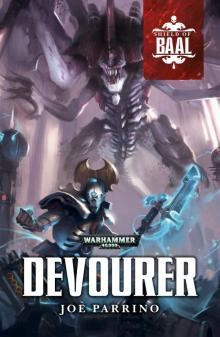 Devourer - Joe Parrino
Devourer - Joe Parrino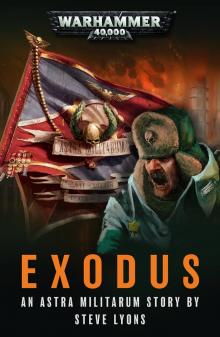 Exodus - Steve Lyons
Exodus - Steve Lyons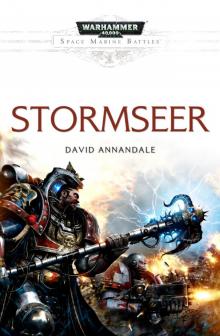 Stormseer - David Annandale
Stormseer - David Annandale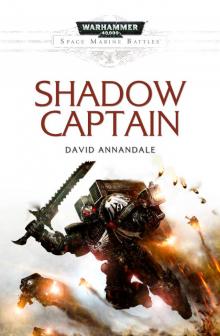 Shadow Captain - David Annandale
Shadow Captain - David Annandale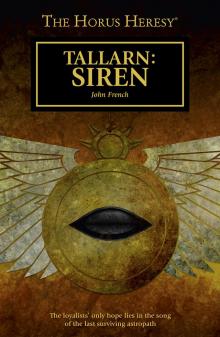 Tallarn- Siren - John French
Tallarn- Siren - John French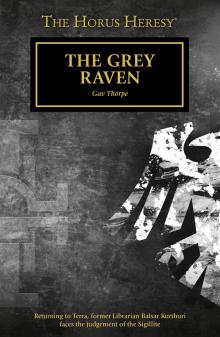 The Grey Raven - Gav Thorpe
The Grey Raven - Gav Thorpe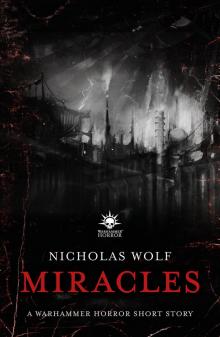 Miracles - Nicholas Wolf
Miracles - Nicholas Wolf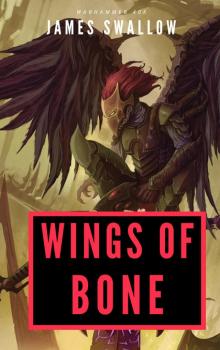 Wings of Bone - James Swallow
Wings of Bone - James Swallow